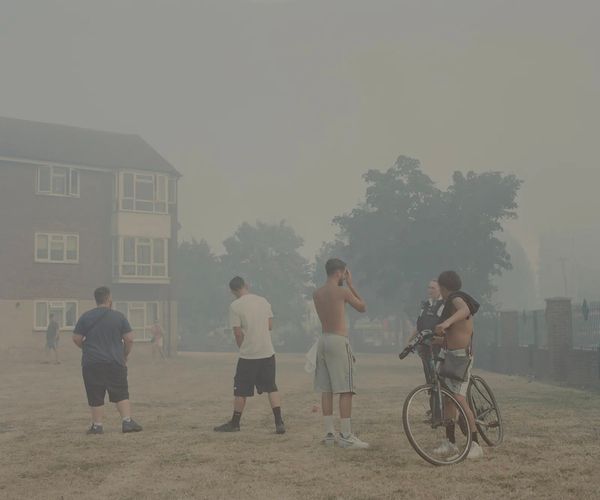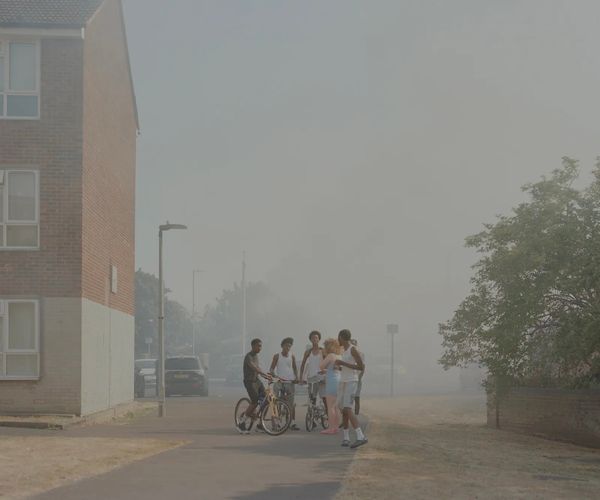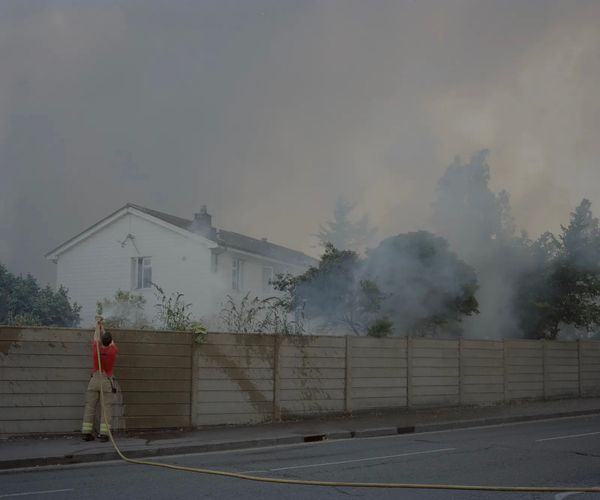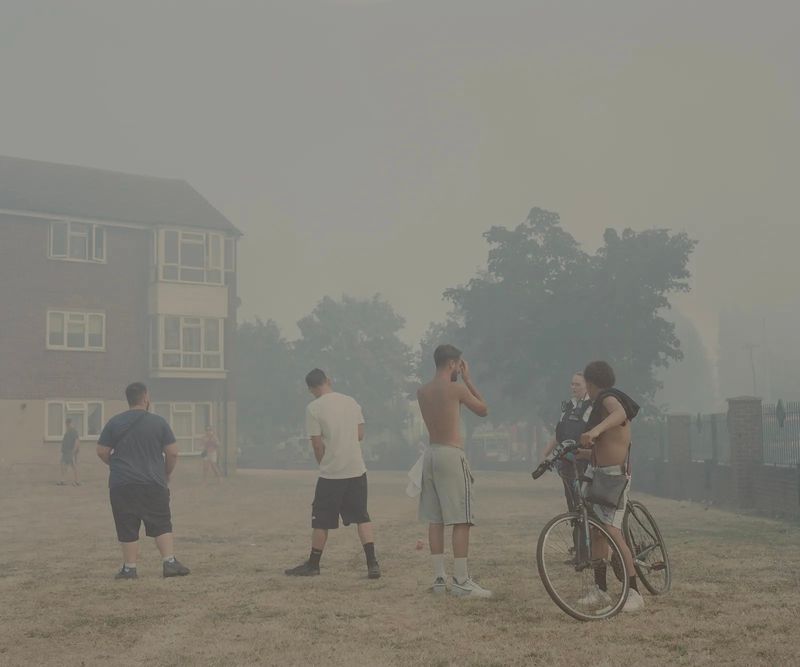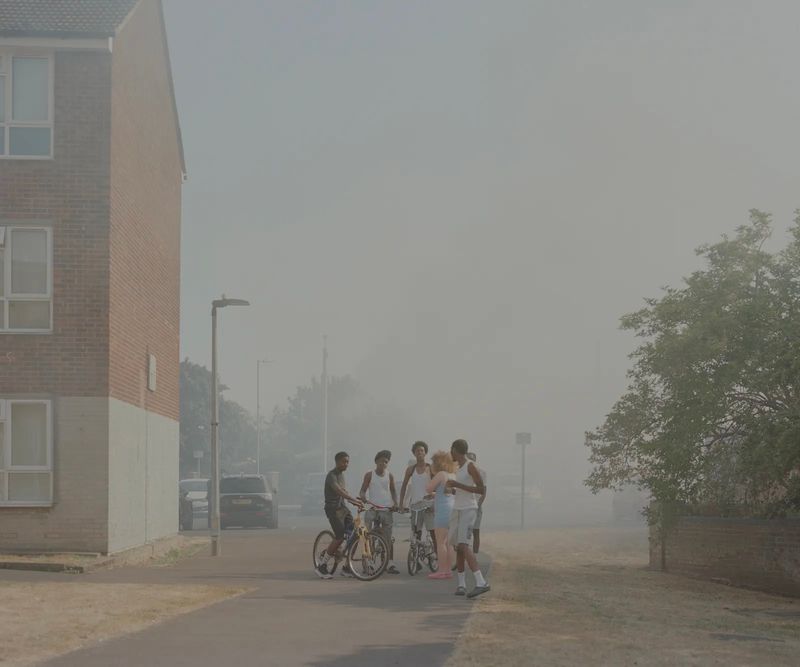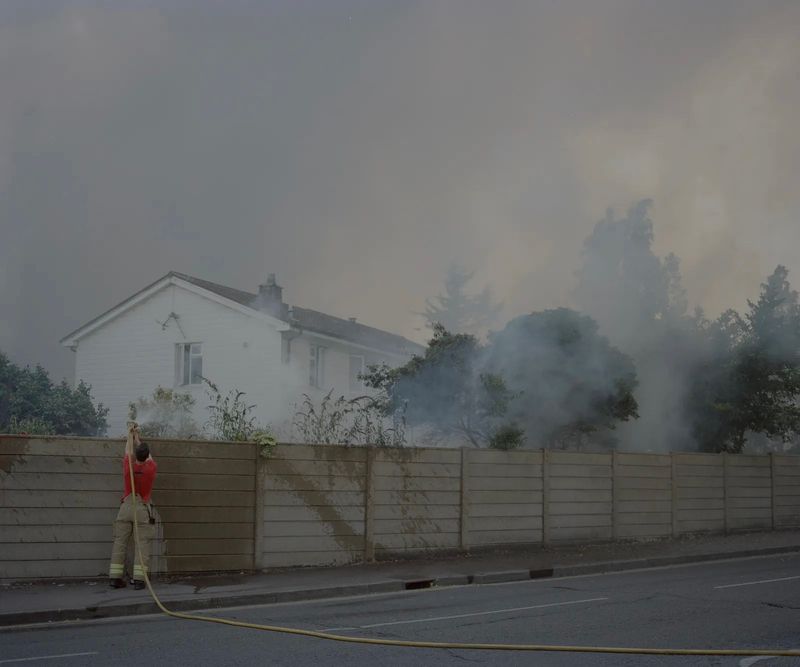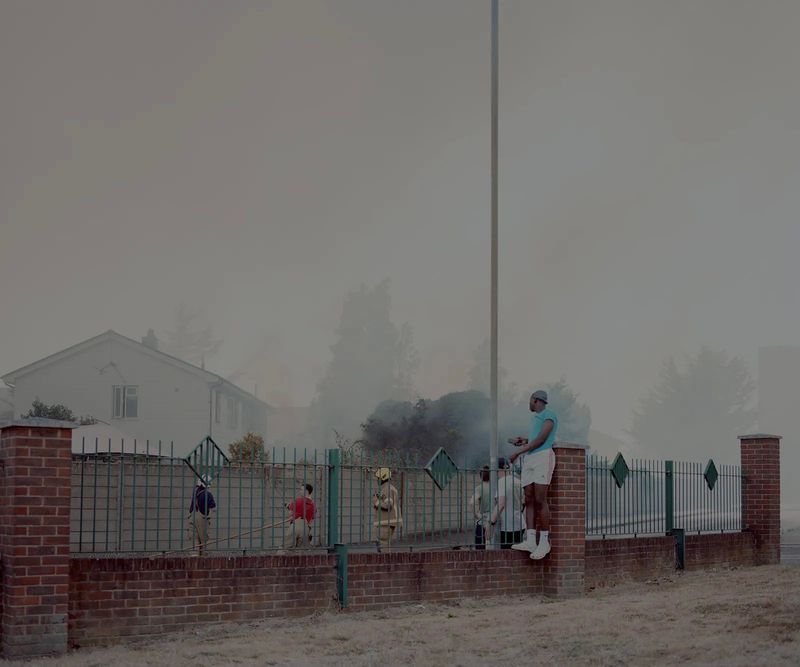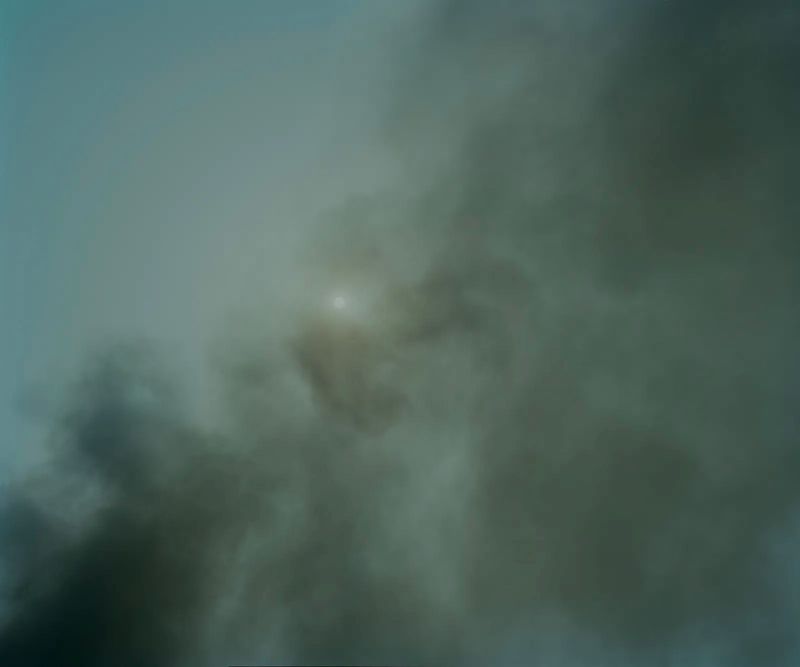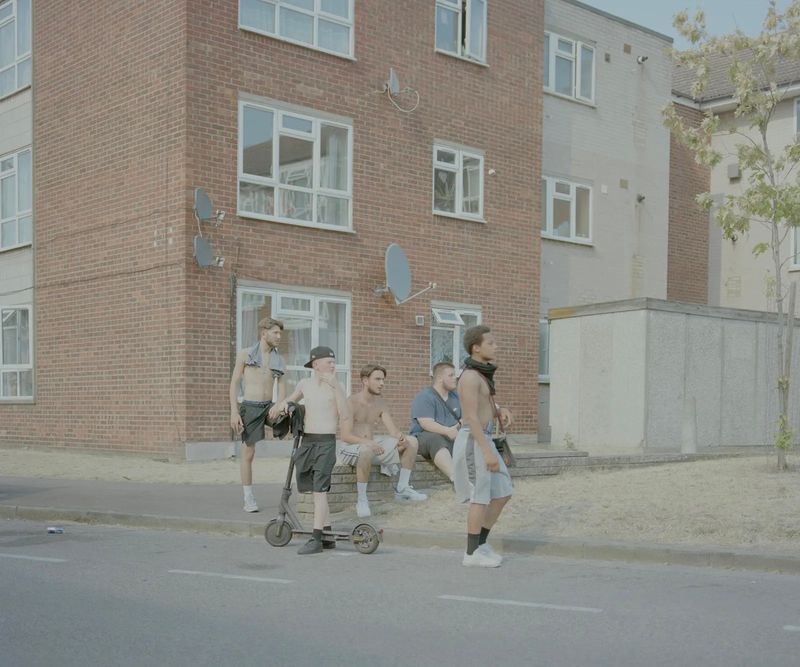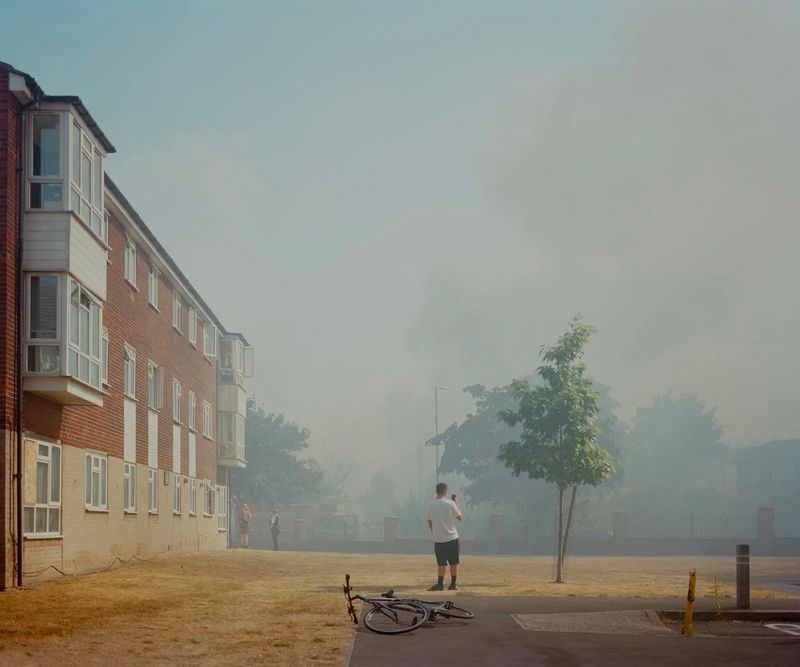Polly Tootal’s Searing City of Inequalities
-
Published8 Feb 2024
-
Author
In her work London Burning, photographer Polly Tootal captures the dramatic event of a fire breaking out in a small suburban community, on the hottest day of the year, and the impact this had on the residents.
It was one of the hottest days in the U.K. On July 29, 2022, London hit record heat, with temperatures soaring to a record-breaking 40 degrees Celsius.
Some of the fires, scattered across the city, were initially out of control. In a small community in east London, bits of debris were flying through the air, while people were getting dangerously close to the flames, as the rising smoke made it difficult to breathe and hazardous to stay. A hot wind fanned the flames in various directions. Polly Tootal’s clothes still retained the smell of smoke when she made her way home.
On that scorching day, Tootal headed east, where a fire had broken out in a small residential community on London’s outskirts, adding to the dozen fires that had ignited across city. The images she captured form the core of Tootal's work, London Burning.
It wasn't an ordinary fire though, as ordinary as such an event can be. “It’s not just photographing a fire in a housing estate, it's photographing a fire in 40 degrees, the hottest temperature recorded in London in history. That's why it's scary,” Tootal says. The possibility existed for it to recur again and again and again.
Despite police efforts to keep people at a distance, kids and residents from the housing were all around. Minor confrontations ensued. The police had evacuated the main area where some facades were made of meltable material, and residents were relocated. A large gathering of people observing the events assembled in another area. The fire brigade engaged in combating the flames, which took them 10 hours in total to bring under control. They faced challenges due to the numerous ongoing fires throughout the city and a shortage of firefighters.
Tootal approached the fire and the community as closely as possible, but authorities kept moving her around. She attempted to find alternate routes back to the area. “My interest was in documenting the people in their environment, within their housing estate,” observing the unfolding events from their perspective, she explains.
Much of Tootal’s work develops around the periphery of cities, exploring the edges in between urban and industrial landscapes. “[These are] places where there's a mixture of infrastructure, industry, and housing estates, in more deprived areas… And that's why this [incident] was so sad as well,” she says.
Her presence was well-received by the community. Once she clarified that she was not a news photographer but rather an artist covering the event, residents were willing to participate in the narrative she was creating. She had two cameras with her, one digital and one analog, and it was film that effectively conveyed the intensity of the events she observed. Film possesses an organic porosity that allowed her to capture the smoke’s ethereal quality permeating the air, she says; you could almost sense the fog, clouding your eye, a breathless atmosphere enveloping the space and the residents' bodies, making them more vulnerable.
“It was kind of horrible and exciting and scary,” Tootal says. She dropped her camera at one point; it slipped out her hand as she got closer to the fire.
Climate change is effecting the U.K. like any other country in the world. England experiences more storms in the winter compared to years ago, leading to flooding in cities. A tornado struck an area of Greater Manchester last December, causing significant damage.
Tootal continues to produce work that looks at these communities on the edges of cities. They’re deprived communities living in social housing, where there’s a sense of anticipation that they’ll be overlooked, representing the demographic most impacted by global climate change. The recurring pattern persists, Tootal says, as developing nations bear the brunt of West’s greed, and its consequences. This familiar cycle is strikingly evident in Tootal’s images, depicting the people who are enduring this hardship the most.
--------------
All photos © Polly Tootal, from the series London Burning
--------------
Polly Tootal is a British photographer based in the U.K. Her work focuses on liminal zones, the outskirts of cities where urban and infrastructure meet, highlighting the chaos and control that power forces upon populations and the environment. Find her work on PhMuseum.
Lucia De Stefani is a writer and editor focusing on photography, illustration, and everything teens. She lives between New York and Italy. Find her on Instagram and Twitter.
